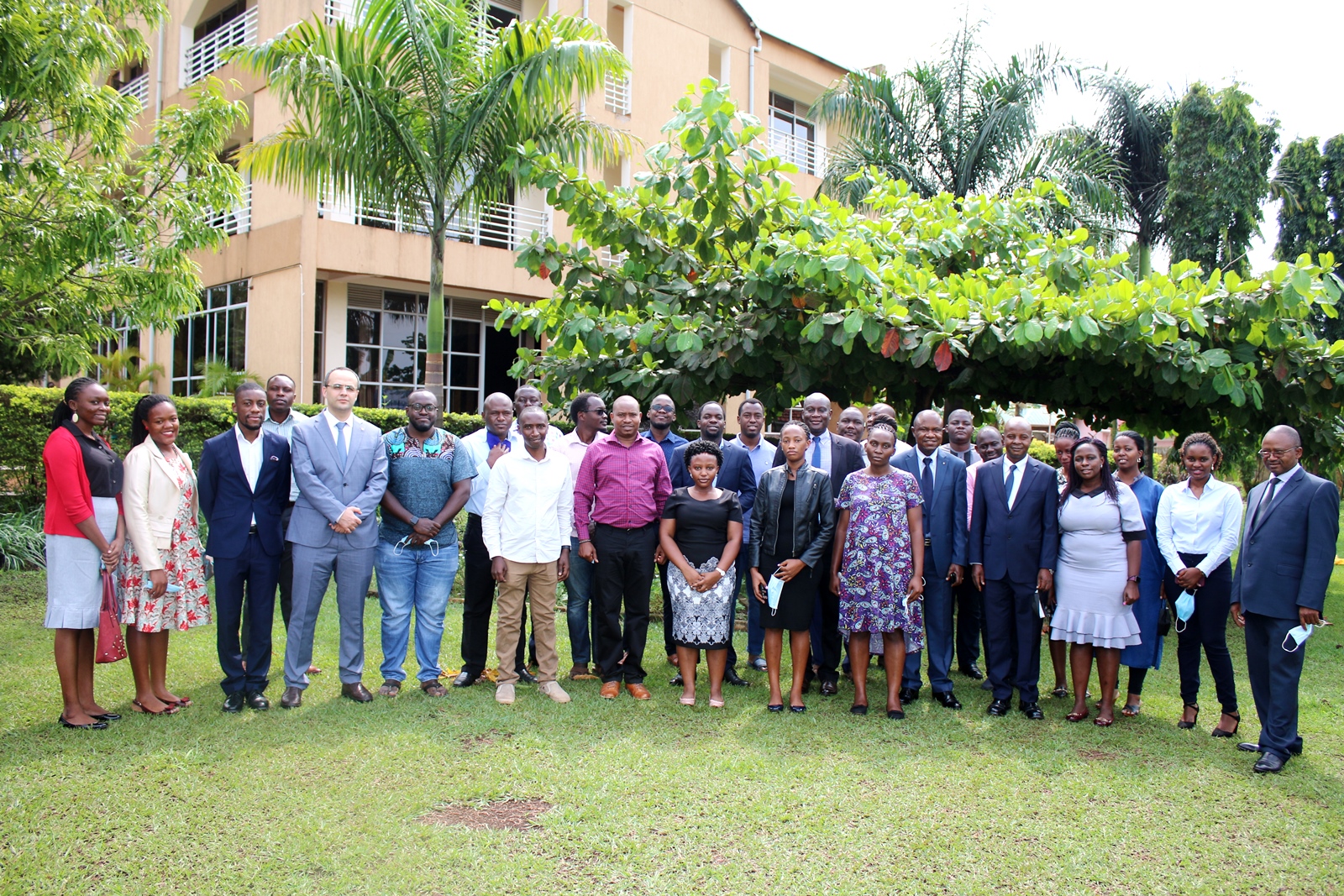The Public Investment Management (PIM) Centre of Excellence at the College of Business and Management Sciences (CoBAMS) has started a two-week training in Investment Appraisal and Risk Analysis. The trainees are drawn from the Ministry of Finance, Ministry of Works, Makerere University, Ministry of Tourism, Wildlife and Antiquities, Ministry of Trade and Industry, Ministry of Education among other MDAs. The training taking place in Jinja, was opened on February 21, 2022 by the Principal CoBAMS, Prof. Eria Hisali.
Prof. Hisali commended the PIM team for fostering knowledge transfer and also encouraged the participants to take keen interest in the course, saying the skills they will get during the duration of the training will help improve the way the country does public investment.

It is envisioned that the capacity building will ensure that projects that are financed can meet the expected outcomes, hence maximize their returns of these investments to the country.
He said CoBAMS was committed to rolling out capacity building with the intention of starting a Masters in Public Investment Management. He called on the trainees to participate in the intermediary level training so that they too can become trainers. “As we embark on developing capacity in PIM, we need to look at forming an umbrella body which will help self-regulate, set and manage standards,” Prof. Hisali said.
The Principal thanked the World Bank for funding the PIM project and the Cambridge Resources International and the Ministry of Finance for partnering with CoBAMS.

The Principal Investigator of the project, Prof. Edward Bbaale also thanked the World Bank and all other partners for trusting the Centre with the training needs of the country.
Ms Rachel K. Sebudde a Senior Economist with the World Bank commended the government for its effort in improving management of public investments.
“As World Bank, representing Development partners, we do commend the various actions government is undertaking to improve the way public investments are managed in the country,” Ms Sebudde said.

The government has in recent years increased the amount of resources it allocates to capital investments. Despite the increase, the country still faces challenges of the quality of the infrastructure.
“If these constrained are removed, the country would no doubt accelerate economic growth and improve quality of life,” Ms Sebudde said.

She warned that it will be difficult to maximize returns from oil and gas investments if the quality of projects is poor.
According to the World Bank study, quality issues arise from the poor design of projects, delays in implementation, cost escalations, time-overruns, contract disputes, abandonment of projects, substandard quality of some completed projects, and rapid depreciation of public capital stock.
The World Bank Officer advised that to make the public resources yield higher returns, and increase and sustain higher rates of economic growth, the government must aggressively improve its investment management capacity, so that projects are well selected, well prepared, transparently tendered and delivered on time and within budget. It then also needs to maintain its existing and new assets, she added.

She reaffirmed the World Bank’s commitment to supporting Uganda’s development agenda. “As a Development Partner, we appreciate the commitment and zeal that the country continues to demonstrate in exploring alternative and more efficient models for development,” Ms Sebudde said.
According to Mr. Hannington Ashaba, a Commissioner in the Ministry of Finance, the government recognizes the need to improve public investment management and has been training its officers in this regard. A few were trained abroad but government sort to reduce the cost of training by establishing the Centre of Excellence for Public Investment Management at Makerere University. This he said will also allow for training of more public service officers.
Dr. Willy Kagarura, the Manager to the PIM Centre of Excellence said the University was committed to providing capacity building to the government. He applied to the World Bank to continue to support the Centre for at least 5 years as it strategizes on being self-sustaining and generating income.

The Public Investment Management Centre of Excellence
The centre was established following a study done by the World Bank. The diagnostic done in 2016 revealed that there was low return on investment. Some studies revealed that the country was losing 60% of the investments it made. To this end, the World Bank recommended the establishment of a PIM training centre. The centre offers capacity building in Public Investment management systems. The training offered by the Centre is at 3 levels.
- Basic training: It was recommended that this training be massive. It targets people working on government projects. This involves identifying projects, concept writing, profile writing, feasibility studies and uploading the same on the Integrated Bank of projects (IBP)
- Intermediary level: This brings in technics of appraising projects before they are selected to go into the public investment plan.
- Advanced Level: Professional training- MSc and PhD.
The Centre got seed funding from the World Bank, having commissioned the study, which revealed the gaps.
Objectives
- Capacity building in public Investment management
- Research in PIM related fields
- Advisory services

